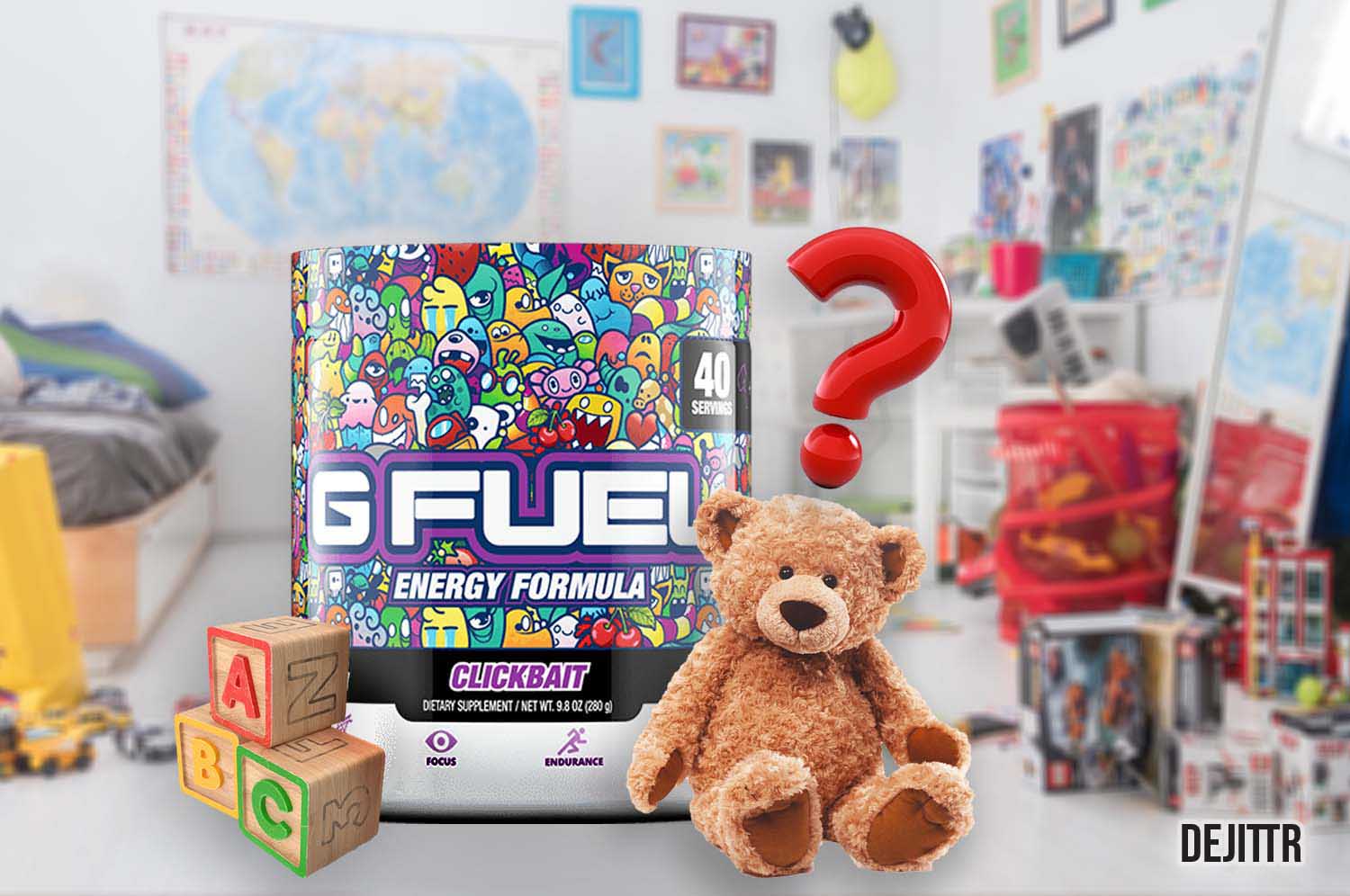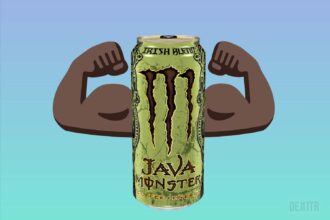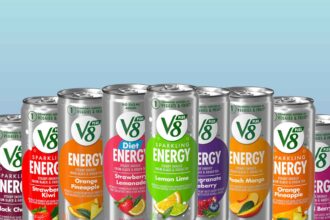G Fuel is marketed as a healthy alternative to sugar-loaded energy drinks, such as Red Bull and Monster. Despite the fact that G Fuel is lower in sugar and calories than most energy drinks, it is not caffeine-free.
G Fuel is marketed primarily at gamers and adolescents, but should kids under 18 be drinking G Fuel? Generally, Gfuel is safe to consume as long as you’re over 18 years old; however, it can pose severe health risks when consumed regularly.
But there is more to learn.
This article aims to discuss the appropriate age for drinking G Fuel and whether Gfuel age limitations vary from country to country.
We’ll also explore various health concerns of drinking G Fuel and what are alternative energy drinks for kids. Stay with us to learn more!
Should kids under age 18 be drinking G Fuel?
Anyone under the age of 18 should not be drinking Gfuel. Despite containing some health-promoting ingredients like vitamin C and B6, it also has high levels of caffeine, so it is not a good choice for children under 18.
Caffeine overdose can lead to headaches, irritability, increased heart rate, blood pressure, and dehydration.
American Academy of Pediatrics has warned children and adolescents not to consume energy drinks containing caffeine and other stimulants because they may disturb their sleep patterns and cause headaches and stomach problems.
But there is a lot more to learn!
Max recommended doses for age group (Chart)
| Age | Max recommended doses (according to Canadian Guidelines) | Impact on Health |
| 4-6 | 45 mg | – Caffeine impact is more than twice on children – More susceptibility to anxiety, insomnia, and nervousness – The American Academy of Pediatrics (AAP) recommends that children younger than 12 should not consume caffeine at all |
| 7-9 | 62.5 mg | |
| 10-12 | 85 mg | |
| Adolescents | 85-100 mg | – Adolescent brain is more susceptible to stress and addiction – It affects concentration and quality of sleep – In the long term, it can affect the maturing process of the brain |
| Adults | Up to 400 mg | – It can cause anxiety, insomnia, fatigue, addiction, digestive issues, muscle breakdown, frequent urination, increased blood pressure, and heart rate |
What is the appropriate age to drink G Fuel?
When it comes to age, we recommend that kids must avoid G fuel until they turn 18. This is because this energy drink has a high dose of caffeine—one 16 oz.
G Fuel energy drink can contain 300 mg of caffeine that can cause symptoms such as headaches or stomach pains in children under the age of 18.
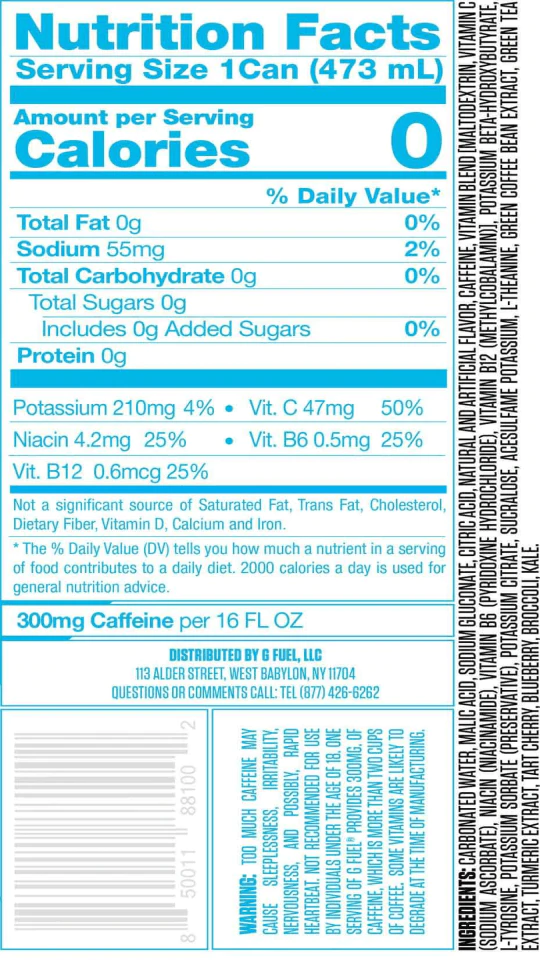
A single serving (7g serving) of G Fuel energy mix contains 150 milligrams of caffeine—the same amount found in a regular cup of coffee.
While that’s a perfectly safe amount for an adult to consume, it may be too much for a child or teenager due to the potential dangers of caffeine consumption.
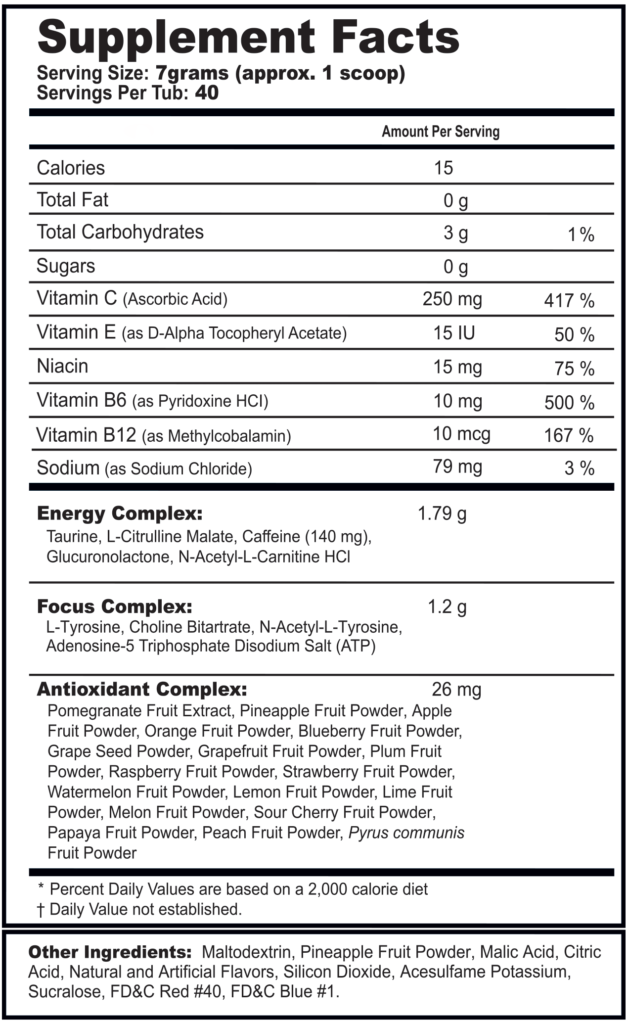
This caffeinated energy drink has been associated with side effects (increased heart rate and lack of sleep, among others) and possible addiction to children. It is therefore not recommended for kids under the age of 18.
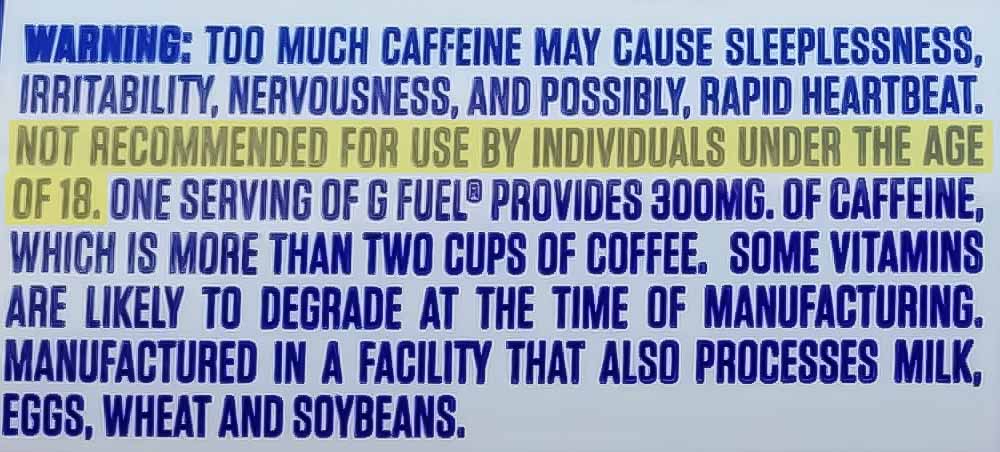
Health concerns of drinking G Fuel?
Let’s talk about the impact of Gfuel on kids’ health. G Fuel is a sports drink that provides tons of caffeine. Kids use this drink to keep themselves awake during long study hours or for a marathon.
However, many parents don’t feel comfortable letting their kids drink G-Fuel or other energy drinks.
Why your kid shouldn’t be drinking Gfuel if they are under 18?
According to the product’s nutrition label on its website, each 7g serving of G Fuel energy mix includes around 150 mg of caffeine.
Caffeine has a number of adverse effects on the body when consumed by someone who is underage, including sleep deprivation and dehydration.
It also increases blood pressure and heart rate and can lead to seizures and other organ damage.
Children’s bodies are still growing and developing, and introducing caffeine in such high doses in the form of G Fuel to their diet could have severe consequences on their health in the long run.
In addition, overconsumption of caffeinated energy drinks can cause behavioral disorders.
A 16 oz. G Fuel can contain 300 mg of caffeine which is much more than the amount of caffeine in a cup of coffee. And caffeine is a drug.
When consumed regularly by children and adolescents, it can cause adverse side effects ranging from headaches and sleep disturbances all the way up to cardiac arrhythmia or even Seizures.
Wondering if G Fuel consumption can cause death?
There are no lethal ingredients in Gfuel; the energy drink does contain caffeine and taurine (the two most important components of energy drinks), which may be harmful to developing brains and can cause adverse effects on the brain when consumed with alcohol.
G Fuel will not kill you as long as you follow the usage recommendations listed on the label and the website (1 serving per day).
However, excessive consumption can lead to heart failure (if you consume 4-5 energy drinks per day). Users should be aware that there are other potential adverse effects associated with Gfuel, such as hyperactivity or jitteriness, and more.
Are kids under 18 allowed to drink energy drinks?
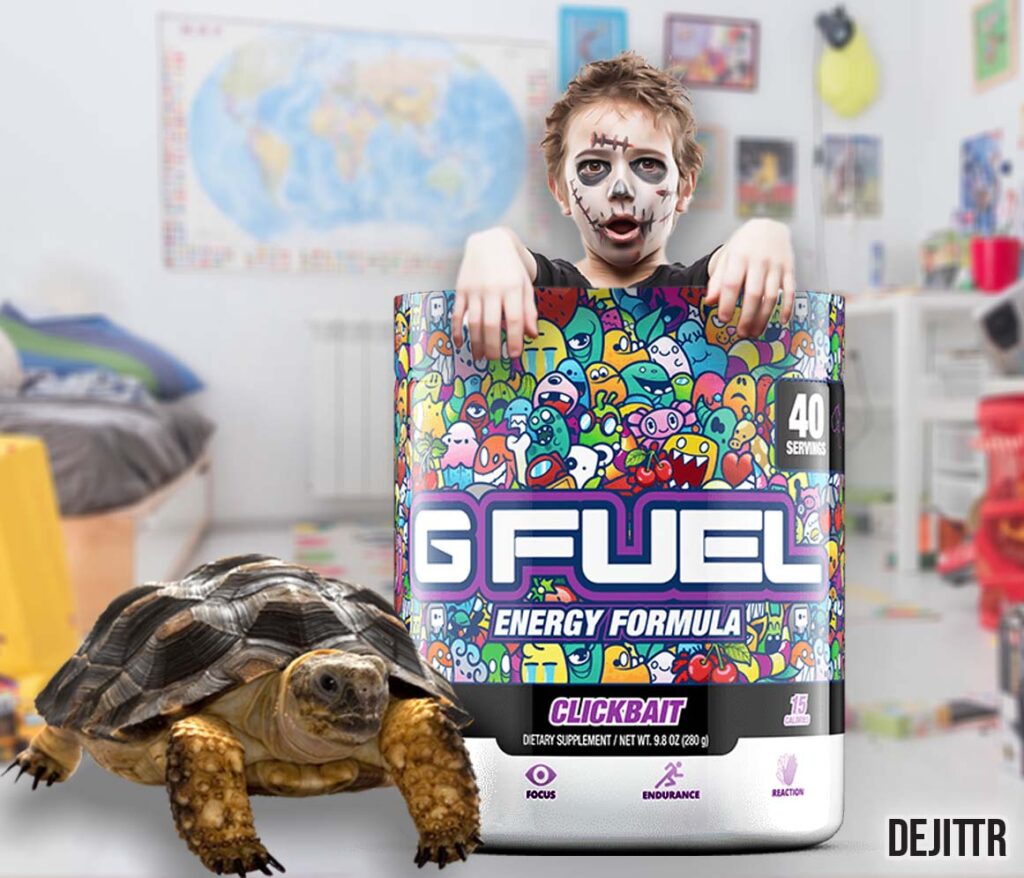
There is no age restriction for the sale of caffeinated energy drinks. However, the American Academy of Child and Adolescent Psychiatry recommends that teenagers (12-18) limit their caffeine intake to no more than 100 milligrams per day as they may be more sensitive to the effects of caffeine than adults. This is because kids may react differently to stimulants like caffeine than fully-grown adults.
G Fuel contains natural ingredients, but it has trace amounts of lead which are not considered safe for kids, pregnant or nursing mothers.
Lead can cause cancer and congenital disabilities. California’s Proposition 65 requires companies to provide a warning on labels if any product contains 0.5 micrograms of lead.
While the amount of lead found in Gfuel is not reported by either the company or the Environmental Research Center, it’s impossible to say how much lead is in G Fuel.
Consumers must be informed about this issue to make an informed decision about whether or not to use G Fuel.
How old do you have to be to drink G Fuel in countries outside the US
There is no definitive answer as to what age someone should start drinking Gfuel. What’s more important is knowing the ingredients and determining if they are healthy for you.
G Fuel contains too much caffeine to be considered safe for children and young people.
Concerns have been raised about the potential damage caused by G Fuel, which is a popular drink among children.
It is also listed on the G Fuel website that this energy drink is not recommended for kids under 18. As a general rule, the minimum age requirement to consume a G Fuel energy drink is 18 years.
The FDA hasn’t set a limit on how much caffeine can be found in energy drinks.
Because of that, the “maximum recommended caffeine intake” is a figure that is difficult to determine, but it is widely accepted that adults should not exceed 400 milligrams of caffeine per day. However, this figure can vary based on age, weight, health, and other factors.
If you’re living in the UK, you must be at least 16 years old to buy G Fuel.
The UK government has stated that it will soon ban the sale of energy drinks to kids due to public health concerns about the effects of caffeine, as drinking caffeinated energy drinks is associated with headaches, sleep problems, and school exclusions.
Some other countries have restrictions on selling energy drinks to minors (kids under 18). In Lithuania, Latvia, and the UAE, it is illegal for vendors to sell energy drinks to children under 18. Latvia has banned energy drinks containing caffeine and taurine.
Another example is Sweden, where the sale of energy drinks has been restricted to pharmacies, and they cannot be sold to kids under the age of 15.
With the growing concerns regarding the consumption of energy drinks by children and adolescents, there is a need to establish a legislative policy to regulate their sales.
The bottom line is that Gfuel should only be consumed by adults who have been informed of its risks and know to limit their intake of caffeinated drinks like this one.
Alternative drinks for children
The best energy drinks for kids are ones that don’t have caffeine in them. While pro athletes may need a little caffeine to get through long training sessions or a challenging game, kids don’t need it.
Instead, you should look for drinks with electrolytes and natural sugars.
These alternative energy drinks will typically include a blend of natural ingredients (such as green tea) and essential vitamins like vitamin B12 which help boost your child’s body without causing any potential harm to their developing systems.
To help you find the best drink, we’ve compiled a list of our favorite kid-friendly energy drinks below:
- BODYARMOR
Body armor is a caffeine-free and gluten-free sports drink. This means you don’t have to worry about your kids getting jittery or having trouble sleeping after drinking a bottle of Body Armor—they’ll just be hydrated, ready for their next activity, and fueled with electrolytes and essential vitamins and minerals and is low in sodium!
And the best part is it tastes amazing! No more boring old sports drinks that taste like watery chalk dust. Your kids will actually want to drink this stuff after a tough workout. However, its EDGE flavors have 100mg of caffeine in 20.2 oz. bottle. - GATORADE
Gatorade is mainly for athletes but can also be given to kids who are involved in physical activities. It contains enough sodium and potassium to replace fluid and electrolytes lost through sweating, prolonged physical activity, or illness. It can also help rehydrate sick kids suffering from mild diarrhea.
While Gatorade does not contain caffeine, it does have large amounts of sugar, which can cause health problems for children (weight gain and increased risk of diabetes) if consumed regularly.
Is it legal for kids to drink energy drinks?
Yes, it is. Caffeinated energy drinks may be legal for children over 18 years old (not recommended for children under 18 years old), but it does not mean they should.
The primary concern is whether energy drinks are safe for children and teens. Based on the known effects of caffeine on the body, it’s clear that consuming too much caffeine at a young age can have lifelong consequences.
Between coffee, soda, and energy drinks, our kids’ diets are full of stimulants that health professionals agree should be avoided. That said, if you’re concerned about your child’s caffeine intake, you should consider the below-mentioned points:
- Caffeine is addictive. Although it may not be as potent as other addictive drugs like heroin or cocaine, regular consumption by children can lead to physical dependence on caffeine intake, just like any other drug.
- What’s more, once a child becomes physically dependent on caffeine, the process of breaking that dependence can be uncomfortable and painful.
Once your child starts consuming caffeine regularly, they will experience withdrawal symptoms if they suddenly stop—headaches, irritability, nervousness, insomnia—and these symptoms are more likely in kids than in adults who consume the same amount of caffeine per pound of body weight.
- Caffeine overdoses are a serious problem among children and adolescents. A child who consumes 2-3 energy drinks could easily overdose on caffeine without realizing what’s happening until it’s too late.
Despite the fact energy drinks are technically legal under a certain age, caffeine is still a drug. Some brands even have as much caffeine in a single serving as three cups of coffee!
Pediatricians do not recommend caffeinated beverages for children or teenagers, including energy drinks, coffee, tea, and soda.
G Fuel Additives Breakdown Down
| Additive | info | |
| Taurine | – Amino acid – Antioxidant and anti-inflammatory effects – Boosts energy performance – Improves heart health – It may regulate adipose-tissue-derived factors – useful in a weight-loss diet the amino acids do technically break a fast, but the insulin response is minimum (spike similar to that of water), so it will not reduce any of the potential health benefits of fasting* | |
| L- citrulline malate | – can help muscle fatigue and accelerate the recovery – it improves strength and endurance – always check that the supplement does not contain added sugar | |
| Caffeine | – black coffee does not break the fast – it stimulates gastrin and promotes gut activity – it may boost autophagy and ketosis | |
| Glucuronolactone | – natural metabolite in the liver – derived from glucose – antioxidant – it is rapidly processed – as it is a form of sugar, it causes a metabolic response | |
| N-acetyl-L-carnitine HCl | – amino acid – helps the body to make energy from fat – benefits the nervous system | |
| L-tyrosine | – amino acid – helps mood stability – it’s better to take it on an empty stomach | |
| Choline Bitartrate | – molecule similar to vitamin b – also called vitamin J – acts as a precursor for acetylcholine synthesis, a neurotransmitter – enhances athletic performance – reduces cholesterol levels and helps in weight loss – it may boost memory performance | |
| N-Acetyl-L-Tyrosine | – amino acid – also called NALT – a highly bio-available form of tyrosine, more water-soluble but with a lower conversion rate to tyrosine in the body – a nootropic precursor necessary to replenish neurotransmitters e.g., epinephrine, norepinephrine, and dopamine – it has anti-stress effects – it limits cognitive impairment incurred by fast-state hunger – it can increase thyroid hormones | |
| Adenosine-5 Triphosphate Disodium Salt (ATP) | – commonly used by athletes as ergogenic aids – reduces muscle fatigue – supplements are not orally bio-available – increases uric acid concentrations | |
| Fruit Powder | – it is dried fruit finely ground – used as a natural flavoring – it contains fruit sugar, then calories – it causes a glycemic and insulin response | |
| Maltodextrin | – raises blood sugar levels higher than table sugar – 4 calories/gram, like sugar – it comes from GMO corn – it can cause side effects like allergic reactions and bacteria-associated intestinal disorders | |
| Malic Acid | – alpha-hydroxy acid found in certain fruits – plays a role in the energy production in the body – usually bound with L-citrulline in citrulline malate (L-arginine) components – boosts sports performance – used as a food additive, as medicine for dry mouth, as a skin-care ingredient in cosmetics – it might lower blood pressure – if taken in a supplement with added sugars, it may break a fast | |
| Citric Acid | – alpha-hydroxy acid found in citrus fruits – in its natural form, it is an antioxidant and anti-inflammatory – it can be made from GMO, and it can derive from a fungus – can cause mold allergies – used as a preservative – if taken in a supplement with added sugars, it may break a fast | |
| Natural Flavors | – flavor enhancers – created from substances extracted from plant or animal sources – a natural flavor mixture may contain chemicals – can contain spices, fruit, herbs, dairy, etc. contains calories | |
| Artificial flavors | – flavor enhancers – created from substances extracted from synthetic chemicals – mimics the taste of natural ingredients even if they are zero-calorie may interfere with the fast as they cause an insulin spike | |
| Silicon Dioxide | – also known as silica or E551 – food additive – it has been shown to help flush out aluminum – some silica supplements contain thiaminase, which can make you lose vitamin B1 faster, and added sugar that can make you break a fast | |
| Acesulfame Potassium | – typically coupled with artificial sweeteners – flavor enhancers, very sweet – stable when heated – it has been shown to disrupt the gut biome it has been linked to cancer and thyroid damage | |
| Sucralose | – sweetener – even if it does not cause insulin spikes, it can impact the metabolism stimulates hormone secretion in the gut | |
| FD&C Red #40 | – artificial colorant for food – may be dangerous for the body can cause allergic reactions and other side effects | |
| FD&C Blue #1 | – artificial colorant for food – may be dangerous for the body toxicity has been reported |
Chart last updated April 27, 22 by Dr. Irene Mazzuca

Dr. Irene Mazzuca
[Article Reviewer] Collaborator and reviewer at dejittr.com. Irene holds a Bachelor of Medicine and Bachelor of Surgery at the Sapienza University of Rome.
Other recent articles:


